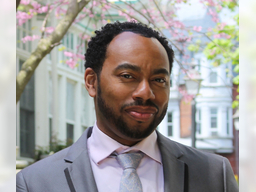MEMS Spring Colloquium
What's Love Got to Do with It? A Lecture by Cord Whitaker
Location
Performing Arts & Humanities Building : 132
Date & Time
April 4, 2024, 4:00 pm – 6:00 pm
Description
What’s Love Got to Do with It?: Medieval Romance as Critical Race Studies Archive
Premodern critical race scholarship regularly treats medieval romances as evidence for the development of race in premodernity. It is less common for scholars to discuss why studying the medieval romance genre on the whole is productive. This talk argues that medieval romance, with all its adventure, irony, and burgeoning interiority, was especially well equipped to register the concerns and “cultural fantasies”—political and personal, artistic and administrative—of people in Christian Europe in the eleventh through fifteenth centuries CE. This talk also explores the elements of medieval romance that supply its enduring power and have allowed it to shape a modernity in which love is taken for granted as integral to familial structures and as a desirable end in-and-of itself. While, since the Enlightenment, romantic love has often been used to maintain racial distinctions and hierarchies, this paper will consider the ways the romance tradition also enfolds cultural, religious, and racial diversity that challenges those very distinctions. I will present as evidence several medieval romances that challenge modern racial distinctions: the King of Tars, Aucassin et Nicolette, and Le Roman de la Rose, among others. This paper asks: What are the medieval romance archive’s implications for modern racism and antiracism? And, finally, what’s love got to do with them?
Dr. Cord J. Whitaker is an Associate Professor in the Department of English and Creative Writing at Wellesley, where he specializes in the literature of the Middle Ages and the histories of race and racism. The author of Black Metaphors: How Modern Racism Emerged from Medieval Race-Thinking and a host of articles on race and the Middle Ages as well as the editor of important volumes on the topic, Whitaker has led significant initiatives in diversity and inclusion within medieval studies and beyond.
